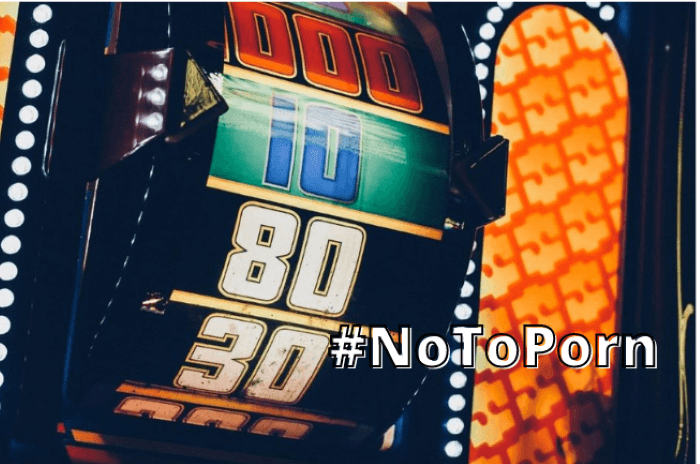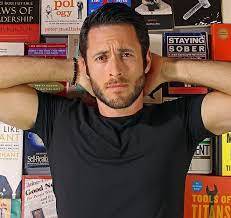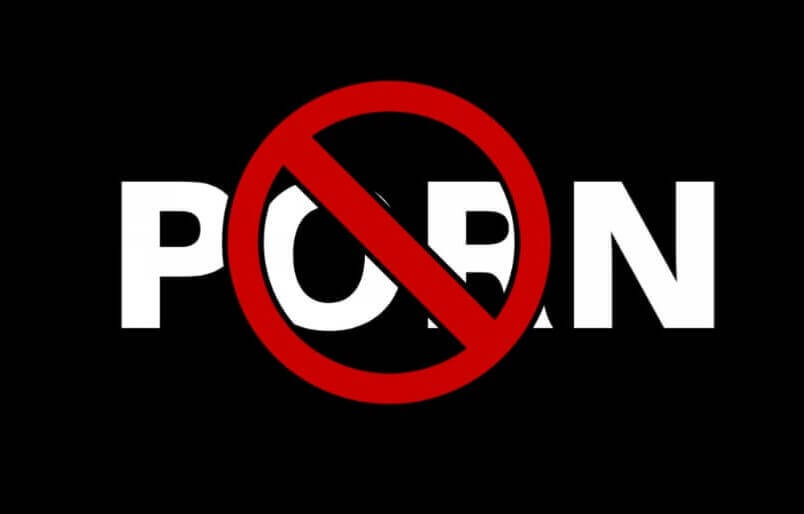
Temptation is ubiquitous in the modern world, but that is not the whole story. Today, there’s also an unprecedented amount of resources and support available to help people make wise, sexually-integral choices. Granted, it still takes a special kind of character to live a porn-free life in the 21st century. Becoming porn-free–and staying porn-free–typically entails a journey of personal growth and development (a “leveling up”), such that one author described quitting porn as “The Rite Of Passage For The Modern Man.” [Many of the following observations equally apply to women with a porn problem, as well. ]

When men go through this process, popularly called “reboot,” they experience a huge number of positive side effects that go beyond just the realm of sexual health. They become stronger, more disciplined, more focused. They reconnect with a vitality in life. They gain strength that then enables them to go on and do other, more positive things. And it seems like once a man is able to navigate the field of porn–be able to quit porn–he’s able to navigate these other vices, these other issues, and develop a lifestyle that can really help him show up as the man he wants to be.
Mark Queppet in Quitting Porn Is The Rite Of Passage For The Modern Man
There’s no single template; however, many people who live porn-free share a number of characteristics. In this article, I identify 10 common traits of people who aren’t a slave to pornography, gleaned from my experience and observation during the last decade. You can add or take away from the the list as you deem fit.
As you read this, ask yourself which of these areas you do a good job in, and which (if any) could use some work.
When people aren’t a slave to pornography . . .
1. They have healthy social relationships
Aristotle famously said, “Man is a social animal.” What he meant was that humans evolved to be relational. The only beings that don’t need social activity are “beasts” and “gods” (and even God in religions like Christianity is relational). The bottom line is that being anti-social and living disconnected from other people typically leads to depression, anxiety, and poor life outcomes in human beings. A pornography habit or addiction thrives in isolation (hence the term “silent epidemic” and “my dirty little secret”). You don’t need to find a drug dealer. You don’t need to pass through security at a casino. You don’t need to interact with any other human beings at all.
On the other hand, time spent with the right people fosters connection. When our fundamental psychological need for connection is being met, we tend not to settle for toxic counterfeits. People also supply us with accountability, both directly and indirectly. There is structured accountability (highly recommend for all people in the internet age), which consists of routine, goal-oriented exchanges. There’s also the accountability of simply being around people on a regular basis and consciously/unconsciously not wanting to do things that create shame/damage our relationships with them.
2. They know how to manage stress
Stress is arguably the biggest trigger of unwanted sexual urges for most people (in addition to boredom and loneliness). Life is stressful, and there are unique challenges of life in the 21st century. Monitoring our stress levels, understanding our personal stress triggers, and most importantly, crafting a plan to address them, is vital to becoming and staying porn-free. Hobbies, routines, disciplines, relationships, time management, and therapy play a role in this regard.
If we don’t control our stress levels, they will wreak havoc on our physical, emotional, and spiritual health. And likely fuel coping behaviors that are not in our medium- or long-term interests.
3. They learn from their relapses instead of self-deprecating
Not being a slave to pornography does not mean that we will never relapse. However, how we respond in moments of weakness and moral failure is critical. A lot of people beat themselves up with thoughts like “Woe is me,” “I’m a terrible person,” “How can God forgive me?” “How can I forgive myself?” These are all expressions of weak-mindedness, and only serves to increase the shame and stress that likely contributed to relapse in the first place.

If you just relapsed, listen up. Stop feeling shameful. It makes you want to do one thing: isolate. Studies show that when you isolate, you become extremely stressed out. That stress builds and builds and makes you want to do one thing again, go and relapse. Relapse, shame, isolation, stress, relapse, all the way to your inevitable hell.
Josh Hudson
On the other hand, when we study our relapses, we gain valuable knowledge that can keep us from going back in the future. I’m talking about insight into our habits, emotions, unresolved issues, and environment. In other words, there’s a story behind every relapse. People who aren’t a slave to pornography know that by mastering that story, they can cancel the sequel in advance. While a relapse may be disappointing, it doesn’t have to be devastating. In fact, it can be an opportunity to come back smarter and stronger.
4. They spend time off the grid and in nature
The biggest enabler of a porn habit is technology. For all its merits in other areas, technology can be a thorn in the side when it comes to becoming and living porn-free. However, ditching smartphone technology and social media outright just doesn’t seem like a viable option for people who want to live a modern life. That said, there are steps people can take to mitigate technology pitfalls. For example, routinely disconnecting from the internet and our phones (“going off the grid”) may be a good starting point. If you’re like me, the majority of the time you spend online isn’t a necessity (screen time statistics can help demystify our smartphone usage).
As an alternative, spending time in nature is good for our emotional and physical health. A number of studies have been done on this topic (e.g. nature and emotional health). When we spend time outdoors, where life abounds, we feel more connected to life, in general. Obviously, this effect is stronger the nicer it is outside, but most people reading this live in climates where the weather is tolerable for at least 2/3rds of the year.
5. They have strong moral principles and values that counteract the allure of pornography
If we want to become and remain porn-free, we need strong morals that counteract the appeal of instant gratification. In the absence of strong morals, it’s easy to take the path of least resistance, while downplaying the negative effects of our actions in the medium- and long-terms. Strong morals are typically the result of education. Only when we examine issues in detail (introspection/observation) can we accurately assess their effects.
Someone who has a strong conviction that “pornography is absolutely wrong” is far more likely to resist sexual urges than someone who has a weak conviction–or hasn’t made up their mind yet one way or another.
6. They control the food and drink they consume
My observation is that our habits of consumption in one area can influence our habits of consumption in another. The drive to consume food and drink is the most powerful human drive that has been responsible for a great deal of human activity throughout history. Poor dietary choices often result from a mindset that pursues instant gratification at the expense of medium- and long-term interests. This mirrors the attitude of a pornography consumer. To be sure, I’m not conflating the two issues, and this does not apply to everyone, but they have something in common.
One commentator described porn as “the high fructose corn syrup of sex.” He had a good point, and I think the analogy between porn consumption and food consumption has broader implications.
7. They practice a routine of physical activity
As I mentioned earlier, stress is often the single greatest trigger of sexual urges. On the other hand, physical activity is often the fastest way to alleviate that stress. In Stretching: An Unsung Remedy For Blue Balls, I tackle a common physical discipline that can address this problem; there are many others, including lifting weights, cardio, etc. In sum, we often feel that we need sexual stimulation and/or release, when in reality we really just need something physical/sensory (see physical activity to relieve sexual tension).
8. They are mindful of how their actions influence others
This article has focused a lot on self-interest, and that’s understandable, given the inner workings of human psychology. However, pornography is not a victimless crime, even if we exclude ourselves. When we care about others, we regulate our emotions and behaviors in order to benefit them, or at least avoid harming them. Reality is that the porn industry is an exploitative, often criminal enterprise, that thrives off human trafficking. Is that something we want to participate in? I know most people reading this wouldn’t want to incentivize free adults to make decisions that harm their lives, even when those decisions are perfectly legal.
9. They have a vision of the person they wish to become
Jordan Peterson talks about this one. In fact, it is his main prescription for overcoming addiction, including porn addiction. In short, Peterson argues that we need to have a compelling life vision and purpose worth making sacrifices for in the short-term. What is it that pornography is interfering with? Our future family? Work or a business? Connection with and service to others? The more specific and compelling our vision is for the medium- and long-term, the more likely we are today to abstain from the things that get in the way.

Often, what people have to do to get themselves out of an addictive process is to find something better to do to replace it. And so I would say the problem with the gadgets–I mean, they’re amazing things–is that they interfere. They proximally interfere with medium to long-term goals, I would say. And so I think the first thing you have to do to bring them under control is figure out what it is their use is interfering with. It has to be something important.
Jordan Peterson
There is a similar idea in the Biblical Proverbs. Proverbs 29:18 says, “Where there is no prophetic vision the people cast off restraint.” A compelling vision for the future empowers self-control in the present.
10. They practice spiritual discipline
This one doesn’t apply to everyone, but it applies to enough people that I think it’s worth mentioning. Many people derive the moral principles and values I referenced in #5 from a spiritual tradition. Take Christianity, for example, which provides a spiritual framework on lust and has extensive writings on the topic of sexual integrity. In fact, every religious and spiritual worldview that I know of warns of the spiritual consequences of lust, in addition to their physical, emotional, and relational ones. Having a spiritual anchor, or at least a worldview of human and/or divine connectedness, can be an asset in the process of becoming and staying porn-free.

For more, see A Profile Of The Porn-Free Man Or Woman

